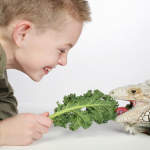Foods that are Toxic to Dogs: A Comprehensive Guide
Dogs are often considered as a part of the family, and owners want to ensure that they are safe and healthy at all times. However, sometimes pet owners may unknowingly feed their dogs foods that are toxic and harmful to their health. It is important for dog owners to be aware of the foods that are toxic to dogs and avoid feeding them to their furry friends.
Several common foods can be toxic to dogs, including chocolate, grapes, raisins, onions, garlic, avocados, and certain nuts like macadamia nuts. When consumed, these foods can cause a range of symptoms, including vomiting, diarrhea, abdominal pain, lethargy, tremors, seizures, and in severe cases, organ failure or even death.
It is important for dog owners to be aware of the potential dangers of feeding their dogs certain foods. By avoiding these toxic foods, owners can help ensure their dogs’ safety and health. In the following article, we will discuss in detail the foods that are toxic to dogs and the potential risks associated with feeding them to your furry friends.
Common Foods That Are Toxic to Dogs

Dogs are known for their love for food, but not all human foods are safe for them to consume. In fact, some foods that are perfectly fine for humans can be toxic to dogs. Here are some common foods that are toxic to dogs:
Chocolate and Coffee (Caffeine)
Chocolate and caffeine contain methylxanthines, which can be toxic to dogs. When ingested, these substances can cause symptoms such as vomiting, diarrhea, increased thirst, panting, restlessness, rapid heart rate, tremors, seizures, and even death in severe cases. The severity of the symptoms depends on factors such as the type and amount of chocolate or caffeine consumed, as well as the size and health of the dog. It’s crucial to keep all products containing chocolate, coffee, or caffeine out of reach of dogs and seek veterinary attention immediately if ingestion occurs.
Grapes and Raisins
Grapes and raisins are highly toxic to dogs and can cause severe kidney damage, leading to symptoms such as vomiting, diarrhea, lethargy, loss of appetite, abdominal pain, dehydration, and potentially acute kidney failure. Even small amounts of grapes or raisins can be harmful to dogs, and the exact toxin responsible for the toxicity is still unknown. It’s essential to keep grapes, raisins, and any foods containing them out of reach of dogs, and if ingestion occurs, immediate veterinary attention is necessary to prevent serious health complications.
Onions and Garlic
Onions and garlic pose a significant threat to dogs as they contain chemical substances that can cause severe toxicity. Consumption of these foods may lead to hemolytic anemia, where red blood cells are destroyed, resulting in symptoms such as weakness, lethargy, pale gums, vomiting, diarrhea, and dark-colored urine. Even small amounts of onions or garlic can be harmful to dogs, and the specific toxin responsible for the toxicity remains unidentified. Pet owners need to be cautious and keep all products containing onions or garlic out of reach of dogs, including soups, sauces, and seasonings. Immediate veterinary attention is necessary if ingestion occurs to prevent serious health complications.
Effects and Symptoms of Toxicity
When dogs consume toxic foods, they can experience a range of symptoms that vary in severity. The symptoms can appear within minutes or hours after ingestion, depending on the type and amount of food consumed. Here are some common effects and symptoms of toxicity in dogs:
- Gastrointestinal distress: Dogs may experience vomiting, diarrhea, and abdominal pain. These symptoms can lead to dehydration, which can be life-threatening if left untreated.
- Neurological symptoms: Some toxic foods can affect a dog’s nervous system, causing symptoms such as tremors, seizures, and paralysis. Such symptoms may be serious and necessitate prompt medical attention.
- Cardiovascular symptoms: Certain toxic foods can cause a dog’s heart rate to increase or decrease, leading to irregular heartbeat, low blood pressure, and even cardiac arrest.
- Kidney and liver damage: Some toxic foods can damage a dog’s kidneys and liver, leading to organ failure and death.
It’s important to note that not all dogs will experience the same symptoms or severity of symptoms when consuming toxic foods. Additionally, some dogs may not show any symptoms at all, which can make it difficult to know if they have consumed something harmful.
If you suspect your dog has ingested a toxic food, it’s important to seek veterinary care immediately. Early treatment can help prevent serious complications and increase the chances of a full recovery.





















